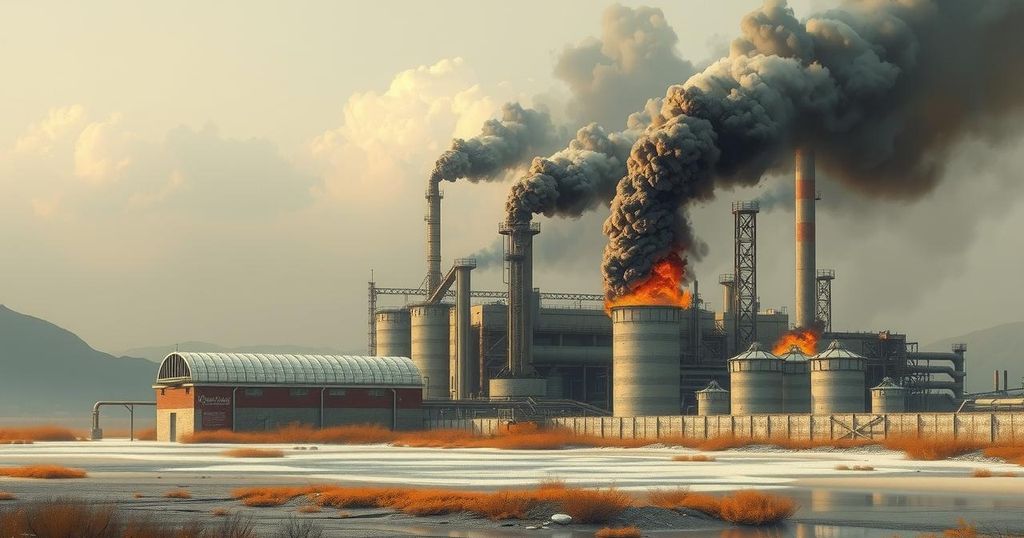The Al-Jaili Oil Refinery: Casualty of Sudan’s Ongoing Conflict

The Al-Jaili oil refinery in Sudan has been severely damaged due to the ongoing conflict, leading to its closure and reliance on costly fuel imports. Estimated repairs will cost at least $1.3 billion and could take three years, underlining the economic challenges facing the nation in the wake of this devastation.
The prolonged conflict in Sudan has severely damaged the Al-Jaili oil refinery, the country’s largest facility, located approximately 70 kilometers north of Khartoum. Initially captured by the paramilitary Rapid Support Forces (RSF) in April 2023 amid escalating hostilities, the refinery was heavily bombarded over subsequent months, leading to a total operational shutdown by July 2023. After its reclamation by the regular army in January 2024, extensive destruction rendered much of the refinery inoperable, with significant sections laid to ruin.
The Al-Jaili refinery previously processed up to 100,000 barrels of crude oil daily, fulfilling nearly half of Sudan’s fuel requirements before the onset of the war. Economists indicate that the facility was vital, providing 50 percent of the nation’s petrol needs, 40 percent of diesel, and 50 percent of cooking gas. With its closure, Sudan must now rely on costly fuel imports, exacerbated by the scarcity of hard currency due to ongoing conflict, leading to a devaluation of the Sudanese pound.
As the army reclaimed control of the refinery, a massive fire engulfed the remaining infrastructure, attributed variously to barrel bombs by the air force or deliberate destruction by the RSF, highlighting the contentious nature of the conflict. An AFP team, examining the devastation, noted the visible effects on the facility, including gutted control rooms and pools of leftover firefighting water. The total construction cost of the refinery was $2.7 billion, with estimates indicating a repair bill of at least $1.3 billion to restore functionality.
The refinery is crucial for Sudan’s economic recovery, yet repair timelines remain uncertain, with parts needing to be sourced internationally. An anonymous engineer stated that, even with financing, full operational status may take three years to achieve. The historical backdrop reveals how large oil reserves previously transformed Sudan’s economy, but the 2011 secession of South Sudan reduced oil output drastically, leaving South Sudan reliant on transit via Sudan’s pipelines. Current fighting has threatened this arrangement, further complicating an already precarious economic outlook.
The ongoing war in Sudan has led to significant destruction of the Al-Jaili refinery, critically affecting the nation’s fuel supply and economic stability. The facility’s closure has forced Sudan to depend on costly imports at a time when hard currency is scarce. Its estimated $1.3 billion repair cost and the potential three-year timeline for restoration present formidable challenges amidst a volatile situation that has already displaced millions and devastated the national economy.
Original Source: www.youralaskalink.com








